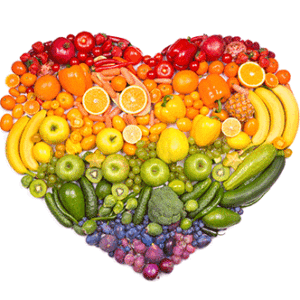How long will my fresh produce last?
Upon returning home from the farmers’ market or grocery store, follow our handy produce storage guide to keep your plump blueberries, juicy peaches, and bright leafy greens fresh for fantastic meals.
Below, you will find information about the shelf life of common fruits and vegetables, storage tips, and signs that your produce is at its peak ripeness. This will help you plan your meals better so that you can consume your most delicate foods first. You will also learn how to store them properly, from general produce keepers to specialized storage solutions for fruits and vegetables.
Remember, it’s always best to be cautious when assessing food safety, regardless of when or what you decide to cook. Trust your instincts – if something seems or smells off, the best action is to discard it or compost it.
Apples
How Long It Lasts: 4-8 weeks in the fridge
Tips for Fresh Produce: If your apple has a few brown spots, it’s OK. Those can be cut away. But if it looks wrinkled or feels mushy, it’s time to toss.
Avocado
How Long It Lasts: 4-7 days at room temperature
Tips for Fresh Produce: Peel off the stem. If the skin underneath is green, the avocado is ripe. It’ll also give in to light pressure when squeezed. To maximize freshness when storing a leftover avocado half, try an avocado keeper that’ll keep browning at bay.
Bananas
How Long It Lasts: 2-5 days at room temperature
Tips for Fresh Produce: Bananas are best when they’re yellow and have just started to develop brown spots. A ripe banana will be easy to peel.
Blueberries
How Long It Lasts: 1-2 weeks in the fridge
Tips for Fresh Produce: Most blueberries from the store will be ready to gobble down, although a trick to keep them fresh longer is to rinse berries with water and vinegar (just a splash). If they start to feel moist or look moldy, it’s time to toss.
Broccoli
How Long It Lasts: 7-14 days in the fridge
Tips for Fresh Produce: Broccoli should have a rich, green color. It’s best to eat when the stems feel firm, not limp.
Carrots
How Long It Lasts: 3-4 weeks in the fridge
Tips for Fresh Produce: Carrots are past their prime when they feel limp or have developed a white, grainy look. If you bought carrots with their greens on, it’s best to cut the greens off and store them separately.
Cucumbers
How Long It Lasts: 1 week in the fridge
Tips for Fresh Produce: Your cucumber should be bright and even green throughout. Discard if it has sunken areas, is yellow, or has wrinkly skin.
Garlic
How Long It Lasts: 3-6 months at room temperature
Tips for Fresh Produce: Garlic in its prime will feel firm and have an off-white color. If any sprouts have grown, peel them away before cooking. Pass up the garlic that has turned tan or looks wrinkly. Editor’s tip: try a garlic keeper for optimal freshness.
Iceberg and Romaine Lettuce
How Long It Lasts: 7-10 days in the fridge
Tips for Fresh Produce: If your greens look discolored, feel soggy, or smell rotten, discard them. To prolong their crispiness, we recommend washing them and storing them in a lettuce keeper.
Lemons
How Long It Lasts: 3-4 weeks in the fridge
Tips for Fresh Produce: Healthy lemons will be bright yellow and slightly firm to the touch. They’re overripe if they have soft spots, dark blotches, or oozing juice.
Onions
How Long It Lasts: 2-3 months at room temperature
Tips for Fresh Produce: A good onion looks clean and firm. Moisture and soft spots can be signs that it’s gone bad. Store in an onion storage container to maximize its shelf life.
Oranges
How Long It Lasts: 3-4 weeks in the fridge
Tips for Fresh Produce: Juicy oranges will look bright and feel slightly firm to the touch. Check to see that there are no soft spots.
Peaches
How Long It Lasts: 1-3 days at room temperature
Tips for Fresh Produce: Ripe peaches will be deep golden in color. They’ll also wrinkle slightly around the stem and give in a bit when gently squeezed.
Potatoes
How Long It Lasts: 3-5 weeks in the pantry
Tips for Fresh Produce: A good potato feels firm and smells like earth. It’s OK if it has tiny sprouts, but if the sprouts are longer than a few centimeters, your potato may have gone bad. Store your spuds in a potato storage container to prevent sprouting.
Strawberries
How Long It Lasts: 3-7 days in the fridge
Tips for Fresh Produce: Fragrant and bright strawberries are the best to eat. Discard if there is any sign of mold.
String Beans
How Long It Lasts: 3-5 days in the fridge
Tips for Fresh Produce: The beans should be slender and firm without any visible seeds. You’ll know they’ve gone bad if they’ve turned limp or moist.
Tomatoes
How Long It Lasts: One week at room temperature
Tips for Fresh Produce: Ready-to-eat tomatoes will feel firm when slightly squeezed and seem slightly heavy compared with their size.
Watermelon
How Long It Lasts: 7-10 days at room temperature
Tips for Fresh Produce: Tap on the side. If the melon sounds hollow, it’s good to eat. It should also feel firm when pressed but not hard as a rock.
Whole Mushrooms
How Long It Lasts: 7-10 days in the fridge
Tips for Fresh Produce: If the mushroom feels sticky or slimy, it’s bad. Whole mushrooms will keep longer than sliced mushrooms.
Zucchini
How Long It Lasts: 4-5 days in the fridge
Tips for Fresh Produce: Your summer squash should have glossy skin and be firm yet slightly flexible. If the zucchini looks gray, it may be overripe.
How to Make Fresh Food Last Longer
Properly storing produce and fresh food is crucial for making it last longer. Many people end up with spoiled food because they don’t take the extra time to store it correctly after grocery shopping. Trust me, I used to be that person, too. However, throwing out too many heads of lettuce and cartons of strawberries can be a wake-up call to realize the importance of food storage. If you’ve invested time and money into buying groceries, it’s worth storing them properly so they last for days or weeks.
How to Clean Out the Fridge
I recommend cleaning your fridge before going to the grocery store or farmer’s market. I usually do this Friday night, after dinner. You don’t want to add new food on top of the old food without doing a cleanout. As you pull things out, organize the space, wipe down any spills, consolidate anything that can go together, and make a mental note of anything that needs to be used ASAP or you need to restock. I wipe down the shelves with my all-purpose cleaner spray, with or without vinegar. These cleaners are easy to make, non-toxic, and great for cleaning stains and deodorizing the fridge. Now is also the time to toss anything that has seen better days.
Fresh produce
Properly store your produce after shopping to keep it fresh for longer. This will save you time, money, and stress during busy weeks.
How to Store Leafy Greens
To store leafy greens and prevent moisture buildup, you can use three methods:
- Place them in a gallon-size bag with a paper towel
- Use a large glass container with a paper towel
- Use a produce keeper container from OXO. These methods can keep leafy greens fresh for about two weeks.
Store Cut Carrots and Celery in Water
To prevent carrots and celery from going limp, cut them into sticks, place them in a glass jar, fill them with water, and store them in the fridge. Change the water every few days. This method can keep carrots and celery fresh for up to 3 weeks.
Keep Berries Fresh and Mold-Free with Vinegar
To prevent mold, wash the berries in a vinegar and water bath (1/4 cup white vinegar to 3 cups of water). After soaking, rinse the berries with fresh water, air dry them, and store them in a paper towel-lined jar with a lid in the fridge.
Store Fresh Herbs Like a Bouquet
Store fresh herbs in a jar with water and a bag over the top to keep them fresh for about two weeks. Basil should be kept on the counter with no cover.
Store Green Onions Like a Bouquet
Green onions can be stored in a glass with water and put in a bag over the top in the fridge for about 2-3 weeks.
Freeze Fresh Fruits & Veggies
Chop large fruits, place them on a sheet pan with parchment paper, and freeze. Berries and grapes can be frozen as is. Use a lemon juice solution for fruits like apples and peaches to avoid browning. Place the frozen fruit in a freezer-safe bag or container and freeze for up to 6 months. Freeze vegetables for roasting.
Store Fresh Radishes in a Bag or Water
Fresh radishes can be stored in a bag with a damp towel or submerged in water. They can also be frozen or fermented.
Store Fresh Asparagus Like a Bouquet
Place fresh asparagus like a bouquet to keep them fresh for a few weeks.
Store Bell Peppers Whole or Cut (or Freeze Them)
Fresh bell peppers can be stored whole in the fridge, cut and stored in an airtight container, or frozen.







